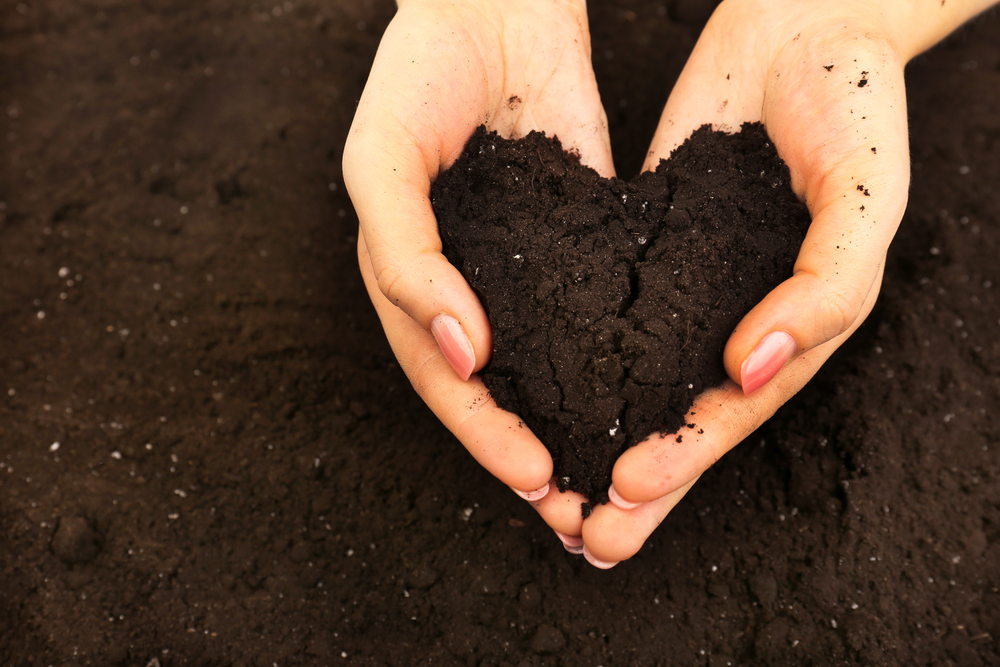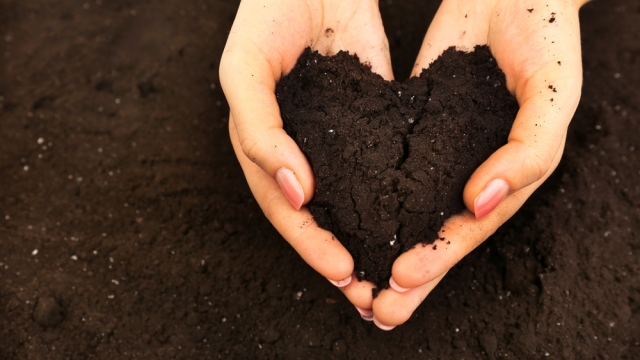Creating a thriving garden is a rewarding endeavor that brings us closer to nature and allows us to enjoy the beauty and abundance of plant life. As any experienced gardener knows, the secret to a flourishing garden lies in the quality of the soil. Organic soils, rich in essential nutrients and teeming with life, hold the key to unlocking the full potential of our gardens. By understanding the power of organic soils and utilizing the right fertilizers, we can cultivate healthy plants and bountiful harvests while promoting environmental sustainability.
Organic soils differ from conventional soils in their composition and approach to cultivation. They are free from synthetic chemicals, pesticides, and genetically modified organisms (GMOs), ensuring a more natural and holistic approach to gardening. These soils are nurtured using organic matter such as compost, animal manures, and cover crops, providing a rich and diverse ecosystem for plant growth. Organic soils enhance the soil structure, improving its water-holding capacity and drainage, while nurturing beneficial microorganisms that aid in nutrient absorption and plant defense against diseases.
One of the key advantages of organic soils is their ability to improve soil fertility and nutrient availability for plants. Unlike synthetic fertilizers that provide immediate but short-term nutrient boosts, organic fertilizers slowly release nutrients over time, nourishing the soil and plants in a sustainable manner. This gradual nutrient release helps prevent nutrient imbalances and reduces the risk of nutrient runoff, which can harm nearby water sources and ecosystems. Additionally, organic fertilizers promote soil microbial activity, fostering a healthy soil-food web that supports long-term plant health and resilience.
In the pursuit of creating vibrant and thriving gardens, organic soils offer a multitude of benefits. Not only do they provide a suitable foundation for plant growth, but they also support environmental sustainability by reducing the reliance on chemical inputs and minimizing ecological impacts. By harnessing the power of organic soils and choosing the right fertilizers for every garden, we can cultivate an abundance of beauty and nourishment while fostering a harmonious relationship with the natural world.
Benefits of Organic Soils
Organic soils offer a myriad of benefits that contribute to the thriving of gardens. Firstly, these soils are rich in nutrients, providing essential elements for plant growth. Unlike synthetic fertilizers that may provide a quick burst of nutrients, organic soils release nutrients slowly over time, ensuring a steady and sustained supply for plants to flourish.
In addition, organic soils improve the structure and fertility of the garden. They enhance the soil’s ability to retain moisture, which is crucial for plant health, especially during dry periods. This increased water-holding capacity reduces the need for frequent irrigation and helps conserve water resources. Furthermore, organic soils are known to promote strong root development, enabling plants to establish themselves more effectively and take up nutrients efficiently.
Moreover, organic soils foster beneficial soil microorganisms that play a vital role in soil health. These microscopic organisms aid in breaking down organic matter, releasing nutrients into the soil, and suppressing harmful pathogens and diseases. By nurturing a diverse and active soil ecosystem, organic soils contribute to the overall resilience and disease resistance of the garden.
In summary, the benefits of organic soils encompass nutrient-rich composition, improved soil structure and fertility, enhanced water retention capabilities, and the promotion of beneficial soil microorganisms. By harnessing the power of organic soils, gardeners can create a thriving environment for their plants to thrive and flourish.
Choosing the Right Organic Fertilizer
https://kellogggarden.com/blog/gardening/when-to-harvest-onions/
When it comes to nurturing our gardens, one of the key decisions we need to make is choosing the right organic fertilizer. With so many options available, finding the perfect match for our plants can sometimes be overwhelming. However, with a little knowledge and understanding, it becomes much easier to unleash the power of organic soils and promote a thriving garden.
First and foremost, it’s important to consider the specific needs of our plants. Different plants have different nutritional requirements, so it’s crucial to choose a fertilizer that caters to their specific needs. For example, leafy green vegetables often benefit from nitrogen-rich fertilizers to promote healthy and robust growth, while flowering plants may require a different blend to support abundant blooms. Understanding the nutritional needs of our plants is the first step towards selecting the right organic fertilizer.

Another important factor to consider is the composition of the organic fertilizer. Organic fertilizers come in various forms, including compost, manure, and plant-based options. Compost is a popular choice as it not only provides essential nutrients but also improves soil structure and water retention. On the other hand, manure-based fertilizers release nutrients gradually over time, offering long-term benefits for the soil. Plant-based fertilizers, such as those derived from seaweed or fish emulsion, provide an additional boost of nutrients while also promoting overall plant health. By examining the composition of the organic fertilizer, we can ensure that it aligns with our gardening goals.
Finally, it’s important to consider the environmental impact of our fertilizer choice. Organic fertilizers are inherently eco-friendly, as they are derived from natural sources and often require minimal processing. However, some organic fertilizers may have higher carbon footprints due to transportation or production methods. By choosing locally sourced or homemade organic fertilizers, we can reduce our environmental impact and contribute to sustainable gardening practices.
In conclusion, choosing the right organic fertilizer is essential for creating thriving gardens. By considering the specific needs of our plants, evaluating the composition of the fertilizer, and being mindful of the environmental impact, we can make informed decisions that unleash the power of organic soils and foster healthy and vibrant gardens.
Best Practices for Using Organic Soils
To ensure the success of your garden, it is essential to follow a few best practices when using organic soils. By properly caring for and nourishing your soil, you can unleash its power and create a thriving garden. Here are three key practices to keep in mind:
Choose the Right Organic Soil: When selecting organic soil for your garden, be sure to consider the specific needs of your plants. Different plants require different nutrients, so it’s important to choose a soil blend that is tailored to their requirements. Look for organic soils that are labeled for specific purposes, such as vegetable gardens or flower beds, to ensure optimal results.
Amend the Soil Regularly: Organic soils may need occasional amending to provide the necessary nutrients for your plants. Add organic matter like compost or aged manure to improve the soil’s fertility and structure. Regularly amending your soil will replenish essential nutrients, enhance water retention, and encourage beneficial microbial activity, promoting overall plant health.
Avoid Overwatering: While watering is crucial for plant growth, overwatering can be detrimental to your garden. Excessive moisture can lead to root rot and other plant diseases. To prevent overwatering, check the soil moisture levels before watering and adjust accordingly. Organic soils, when properly amended, have excellent water retention capabilities, reducing the need for excessive watering.
By following these best practices, you can maximize the potential of your organic soils and create a thriving garden. Remember, healthy soil is the foundation of a successful garden, so take the time to care for and nurture it.



